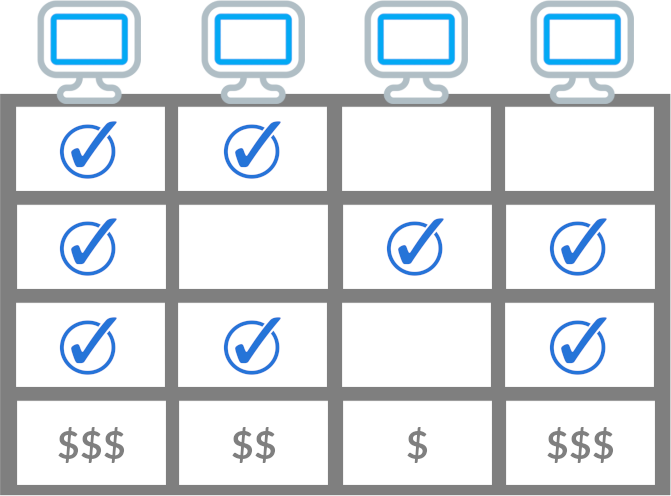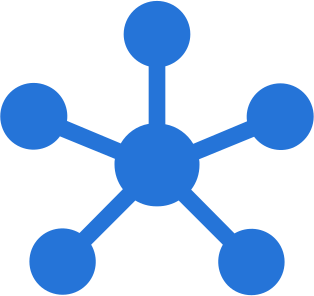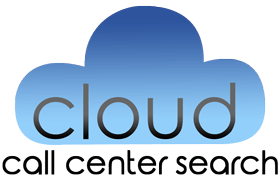Cloud Call Center Software
Providing an exceptional customer experience is no longer nice to have, but necessary for attaining and retaining loyal customers. Traditionally companies competed on price and quality to maximize profits, but a study conducted by Walker found that by the end of 2020, customer experience will overtake both price and quality as a companies key differentiator.
This provides an exciting business opportunity and companies like Uber, Amazon, and other customer experience leaders have been quick to adopt a culture and customer service model that supports providing effortless experiences throughout the entire customer journey.
Many companies have improved customer satisfaction by acquiring cloud based call center software to support customer service goals and empower call center agents to provide a seamless experience.
But what is call center software? How does a company choose whether to purchase an on-premise solution or acquire cloud based call center software? What typical call center features and functionality are needed?
Are you ready to simplify your cloud contact center software selection process? Get started with a free technology vendor feature and price comparison.


What is Cloud Call Center Software?
Traditionally, innovative call center solutions were only available to larger corporations with the ability to purchase expensive on-premise hardware and software. Not only was a large capital expenditure involved up front, but these companies also needed internal IT teams to support and maintain the hardware and software.
Cloud call center software is also known as Contact Center as a Service (CCaaS) provides businesses of all sizes with cost-effective and powerful call center software. Because the software is hosted in the cloud, companies no longer need to worry about internal technology maintenance, expensive upgrades, or large capital expenditure. The cloud contact center vendor manages the hardware, security and redundecies making CCaaS solutions flexible and scalable with minimal downtime.
Top Benefits of Cloud-Based Contact Center Software
Quick Deployment
Cloud contact center software is faster and simpler to deploy than premise call centers. On-premise can take months to set up, while contact center software in the cloud can be deployed in days.
Easy Integrations
Most CCaaS solutions are built on APIs and integrate easily with modern tool sets. CRM systems are necessary for most contact centers and cloud call center solutions allow companies to easily implement CRM integrations with screen pop functionality. APIs also allow for integrations to many other contact center technologies.
Automatic Updates
Contact centers using cloud call center software are given immediate access to new or advanced features as soon as they are rolled out at little or no cost without service disruptions.
Low Cost and High ROI
With no need to purchase costly hardware and hire internal IT teams, companies save money by moving to the cloud. Lower costs and improved satisfaction leads to a higher ROI.
Virtual Call Center Software
Cloud contact center solutions provide companies the ability to employ a global or remote workforce. Because the user interface and customer data are in the cloud, agents can work from anywhere.
Better Customer Experience
The restraints legacy technology places on contact centers make it impossible to keep up with changing customer expectations. Cloud solutions continue to provide innovation for personalized experiences.
Add New Channels
With a cloud solution, companies don’t need to replace their whole system to add new channels like SMS/MMS, social media, mobile apps, and other emerging digital channels.
Scalable
Because cloud contact center software is based on a subscription model, companies only pay for what they use and can scale up and down with season fluctuations and growth. (Some cloud providers require minimums so check your contract terms closely)
Reliability
Cloud customer service software offers uptime that exceeds 99.99% (less than one hour of downtime per year). This level of uptime is hard to find with premise-based contact center software.
Cloud Based Contact Center Software Features
There are many different types of technology used in call centers, but what features should be on any companies checklist?

Inbound Call Center Software
Without the right contact center solution, running your inbound contact center efficiently can be impossible. Inbound software should be used to seamlessly route incoming calls to the right agent in your support teams to resolve callers’ concerns. Empower your service team with the following must-have inbound features:
- Interactive Voice Response (IVR)
- Call Routing/Automatic Call Distributor (ACD)
- Virtual Queue with Callback
- Skills-Based Routing
- Screen Pops
- Call Recording
- Call Transcription
Outbound Call Center Software
To perform outbound calling campaigns, call centers need outbound cloud based call center software with dialing modes and calling functionality that improves agent productivity and agent performance. Power your sales team with the following outbound call center software features:
- Dialer Modes: Manual Dialer, Predictive Dialer, Power Dialer, Preview Dialer, Progressive Dialer
- TCPA Compliance
- List Sorting and Filtering
- Call Scripting


Omnichannel Contact Center Software
Omnichannel Software enables companies to communicate with customers seamlessly over traditional channels (voice, email, chat) and digital channels (SMS/MMS, Social Media, Chatbots, Video) in a single user interface. Omnichannel software is necessary for intelligent routing across all communication channels. The following are must-have omnichannel features for creating personalized customer experiences:
- Omnichannel Support Channels: Email, Web Chat, Live Chat, SMS/Text, Video, Social Media/Social Listening, Mobile Device In-app
- Screen Sharing
- Chat Transfer
- File Transfer
- Omnichannel Routing
- Channel Changing/redirecting
Additional Features/New Features
It is also important to have features for tracking and evaluating your call center operations. Quality Management, Reporting, and Automation are critical for improving the customer experience. Below are additional features included in cloud call center software:
- Real-time Analytics
- Historical Reports and Analytics
- Supervisor Dashboards and Wallboards
- Drag and Drop Report Builder
- Automation, AI, Bots, and Cognitive Technologies
- Built-in Knowledge Base
Our cloud technology experts have in-depth knowledge of the entire cloud call center software landscape. We can simplify your search for the following solutions:
...and more!
Are you ready to simplify your cloud contact center software selection process? Get started with a free technology vendor feature and price comparison.













